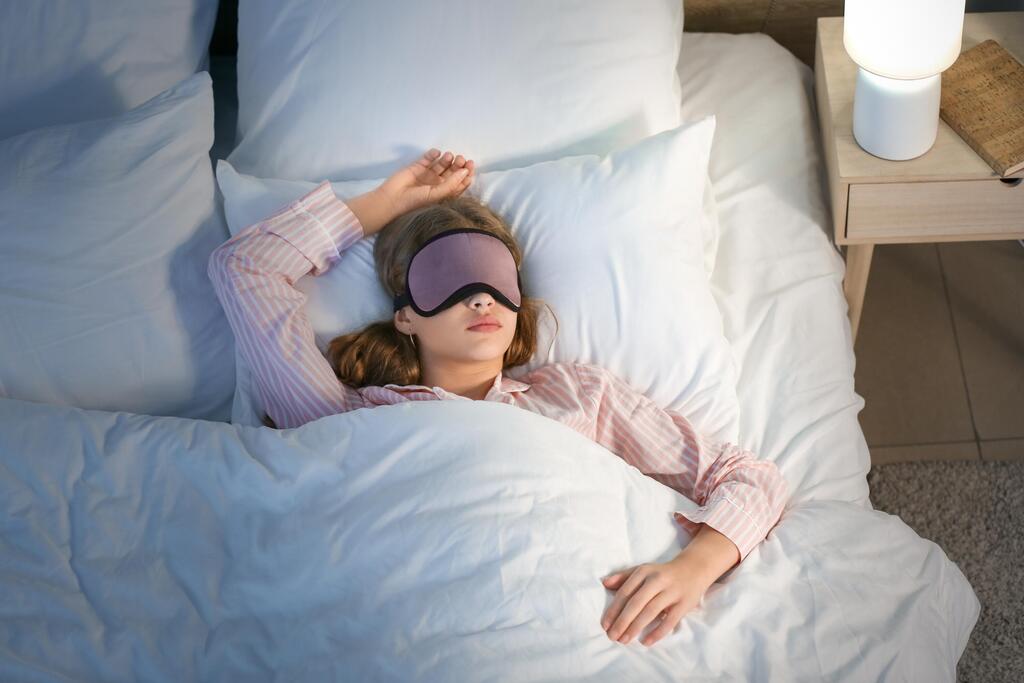Several studies conducted in Israel have concluded that sleep is not only essential for our health and well-being, but it also enhances our memory and learning abilities.
Related stories:
If we are exposed to specific smells and other stimuli while sleeping, it can alter our behavior and habits, such as quitting smoking.
"Smell doesn't always wake us up, but it does alter the way we breathe," says Dr. Anat Arazi of the Neurobiological department at Tel Aviv University.
Associative learning can occur both during wakefulness and sleep. Internalization of certain things while sleeping could potentially impact our behavior while awake
"This is the first study that confirms we can learn entirely new things while asleep," she says. "We chose to focus specifically on associative learning and the studies show that our brains are capable of processing entirely new information, and the simplest example is the noise from our alarm clock that wakes us up.
When it goes off, even while sleeping, we respond to it. Also, if we learn something new just before going to sleep, we're more likely to remember it. Simply put, sleep strengthens memories."
What was something new that you learned?
"We are able to process information that we're exposed to for the first time while asleep. That was new. Past studies tried to examine whether we can learn literal information while asleep," she says.
"The conclusion was that literal information that is presented to us for the first time can only be learned if we wake up during the night. That was the consensus. We wanted to reexamine whether the brain can process previously unknown information while asleep, and the answer was a resounding yes."
How did you do it?
"We took sounds and associated them with odors, both pleasant and unpleasant, and found that people changed their breathing accordingly. They were able to differentiate between sounds that tell us of a pleasant smell and those that tell us of an unpleasant one," she continued.
"They learned brand new associations while sleeping and implemented the newly-found knowledge later when awake, all without even knowing they learned something new. That brought us to the second study which checked whether the smell of cigarettes, associated with unpleasant smells, would turn people off from smoking."
The 2014 study exposed smokers to the smell of cigarettes combined with foul odors like rotten eggs or fish, while they were sleeping. This resulted in a significant decrease in cigarette consumption.
The study found that even the most unpleasant smells do not wake us up, but enable associative learning and conditioning.
"One surprising thing was the reduced craving to smoke due to the combination of other foul smells only worked when people were asleep, so unconscious learning worked much better."
What does it mean?
"We learn more when we're unaware, new information is being processed."
A 2020 follow-up study examined whether a reaction to intense odors while unconscious could predict an improvement in an individual's medical condition. It found that people who were fully unconscious and reacted to smells showed an improvement while being conscious.
"We found that for people who've experienced head trauma and were fully unconscious, their reaction to sniffing something told us much about their prognosis. This method actually works better than cerebral imaging, which is very expensive and requires moving the patient," she says.
"Being such an effective diagnostic tool, it means that it could be used in developing countries, where the access to sophisticated medical machinery is far more limited."
3 View gallery


We remember information longer if we learn it just before falling asleep
(Photo: QuietOn)
A new study currently being peer-reviewed investigates whether a new method can reduce the severity of sleep apnea.
Obstructive sleep apnea is a condition where breathing stops for short periods during sleep, which can increase the risk of heart disease, high blood pressure, diabetes, and other related conditions.
The study found that exposing patients to new smells while they sleep led to a 30% decrease in obstructed breathing, which could make it a viable treatment option for this condition alongside conventional treatments.
"At the moment, treating sleep apnea usually involves putting on a breathing mask while sleeping, which is quite uncomfortable," she says.
March 18 marked World Sleep Day. Prof. Yehuda Adler, a cardiology specialist, told Ynet of a new study published in the peer-reviewed BMC Medicine journal that examined the effects of sleeping disorders on life expectancy and found that such disorders could shorten our life expectancy by up to four years. "Inadequate sleep causes heart problems, atherosclerosis and heart attacks, and just shortens our lives in general," he says.
Dr Arzi’s research is supported by the British Council, as part of the Blavatnik Cambridge Fellowship. The Israeli branch specialises in creating opportunities for development in the areas of research and higher education. This week (21-23 March), the Science Days, the periodic summit events, are being held in London, in the presence of diplomats, government officials, researchers, and donors, who are celebrating the scientific and academic connections between the two countries.



